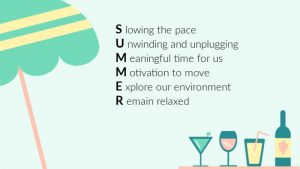by virtualworks | Jun 15, 2025 | Business, business growth, Customer relationships, Leadership, life work balance, Mastery, Outsourcing, Productivity, remote meetings, Remote Office Management, ROWE, Team Work, Time Management, working from home, working remotely
 Over the course of this blog series, we’ve explored the many facets of a Results-Only Work Environment (ROWE) and how it can revolutionize the modern workplace. In this tenth installment, we’ll examine real-world examples of organizations that have successfully implemented ROWE, distill lessons learned, and highlight the impact of ROWE on employee satisfaction, productivity, and retention.
Over the course of this blog series, we’ve explored the many facets of a Results-Only Work Environment (ROWE) and how it can revolutionize the modern workplace. In this tenth installment, we’ll examine real-world examples of organizations that have successfully implemented ROWE, distill lessons learned, and highlight the impact of ROWE on employee satisfaction, productivity, and retention.
Examples of Organizations Successfully Implementing ROWE
Several companies across various industries have embraced the ROWE approach and witnessed positive outcomes:
- Best Buy: Facing a high employee turnover rate in their corporate headquarters, Best Buy adopted ROWE in 2004. The shift resulted in a significant reduction in voluntary turnover, improved productivity, and higher employee satisfaction.
- The Gap: The retail giant implemented a ROWE pilot program in their corporate offices, leading to an increase in employee engagement, productivity, and overall job satisfaction. This pilot program was particularly effective in promoting a better work-life balance for their staff.
- Sun Microsystems: The technology company adopted a flexible work policy similar to ROWE, reporting improved employee satisfaction, reduced real estate costs, and increased productivity. Sun Microsystems found that their ROWE-inspired policy allowed for reduced office space and lower overhead costs, leading to a more profitable company overall.
Lessons Learned and Practical Takeaways
From these case studies, we can gather several essential lessons and practical takeaways for organizations looking to implement a ROWE:
- Clear communication: Successful ROWE implementation requires transparent, ongoing communication between employees, managers, and leadership. Ensuring everyone understands the expectations, goals, and benefits of ROWE is crucial. Best Buy, for instance, found that educating their staff about the new ROWE approach was essential for its successful adoption.
- Proper training and support: Equipping employees and managers with the necessary skills, resources, and tools to navigate the ROWE environment is essential. This may include workshops, mentorship opportunities, or providing access to relevant technology. In the case of The Gap, their pilot program offered support and guidance for employees as they transitioned to the new system.
- Empowering employees: ROWE is built on trust and autonomy. By empowering employees to manage their time and take ownership of their work, organizations can foster a sense of responsibility and accountability. Sun Microsystems found that giving their employees the freedom to work on their terms led to improved satisfaction and productivity.
- Flexibility and adaptation: No two organizations are the same, and ROWE implementation may require adjustments to accommodate unique needs and challenges. Being open to feedback and willing to adapt the approach as needed can help ensure success. The Gap’s ROWE pilot program was adjusted over time based on employee feedback, resulting in better outcomes.
Impact of ROWE on Employee Satisfaction, Productivity, and Retention
ROWE’s impact on employee satisfaction, productivity, and retention can be significant:
- Employee Satisfaction: By providing autonomy, flexibility, and work-life balance, ROWE can lead to increased job satisfaction and employee engagement. When employees feel valued and trusted, they are more likely to be satisfied with their roles and organizations. This was demonstrated by Best Buy’s implementation of ROWE, which led to increased satisfaction and reduced turnover.
- Productivity: With clear goals and expectations in place, ROWE enables employees to focus on their core responsibilities, leading to increased productivity. Additionally, a more engaged workforce is often more efficient and committed to achieving organizational success. Sun Microsystems experienced improved productivity as a result of their ROWE-inspired work policy.
- Employee Retention: ROWE’s emphasis on trust, flexibility, and empowerment can contribute to improved employee retention rates. When employees feel supported, valued, and satisfied, they are more likely to remain with their organizations long-term. The Gap’s ROWE pilot program led to increased employee engagement, which often correlates with improved retention rates.
In conclusion, the Results-Only Work Environment has been shown to have a positive impact on employee satisfaction, productivity, and retention when implemented successfully. By examining the experiences of Best Buy, The Gap, and Sun Microsystems, we can learn valuable lessons and best practices for adopting a ROWE approach in our own organizations. With clear communication, support, and flexibility, businesses can create a work environment that fosters satisfaction, productivity, and loyalty.
by virtualworks | Jan 29, 2024 | Leadership, Mastery, Productivity, Remote Office Management, Time Management, Travelling, Virtual Assistant, working remotely
 When we talk about “working in the cloud,” it’s usually in reference to the digital realm—files stored online, accessible from servers around the world rather than our local hard drives. But let’s take a moment to reminisce about the original clouds—the fluffy, white ones that float above, turning ominous before a storm.
When we talk about “working in the cloud,” it’s usually in reference to the digital realm—files stored online, accessible from servers around the world rather than our local hard drives. But let’s take a moment to reminisce about the original clouds—the fluffy, white ones that float above, turning ominous before a storm.
Last year, I had the unique opportunity to work in those original clouds, and no, it’s not a metaphor. My office was 39,000 feet above planet Earth. While this might sound like a nerve-wracking prospect to some, for seasoned business travellers, it’s become the norm.
Armed with a tablet and other mobile devices, daily tasks and much more can be seamlessly accomplished while jet-setting on business trips—or, in my case, returning from a holiday in the UK.
So, how does this airborne productivity unfold? The airline I flew with provided WiFi access via satellite for a nominal fee, enabling me to respond to emails and check my calendar. All the necessary documents were on my tablet, along with the essential apps. Once I completed my tasks, I uploaded the documents to the digital version of the cloud, making them accessible to my assistant.
In the dynamic landscape of technology, constant change and improvement pave the way for enhanced productivity. For me, staying abreast of current technology transforms idle time into valuable productivity. The idea of having the option to get ahead on my workweek during a 6.5-hour flight is empowering. Yes, the surroundings were a tad cramped, but it worked.
As technology continues to evolve, the possibilities for leveraging travel time productively are boundless. Do you seize the opportunity to embrace technology while on the move, or do you prefer to use travel time as a moment to relax and unwind?
by virtualworks | Oct 9, 2023 | Business, business growth, Leadership, Mastery, Productivity, Uncategorized
 Many business owners start off with a great idea that will change the world and, through time and effort, they will evolve personally and professionally to be the best in their field. Though you might not think of it these terms, what they are actually doing, actually reaching for, is “mastery”.
Many business owners start off with a great idea that will change the world and, through time and effort, they will evolve personally and professionally to be the best in their field. Though you might not think of it these terms, what they are actually doing, actually reaching for, is “mastery”.
You know this, because you work day and night, you have put in the hours of work, training, research, and sweat. I don’t have to tell you that becoming the master of business requires hard work. Malcom Gladwell would tell you that it takes 10,000 hours of “deliberate practice” to master a skill.
Imagine watching the best Formula One driver, or the most incredible ballerina. They make their chosen trade look so easy, and accessible. It is only when you attempt to duplicate the complex beauty of the Dance of Sugar Plum Fairy (reported to be one of the most difficult roles to dance), or harness the 1000 horsepower around a turn pulling 3 G’s in a Formula-1 car, you realize that just because something looks easy doesn’t mean it is.
And that may be true for something like ballet or the violin where the skill is quantifiable. Becoming a master in your field of business however, is much more than “time in” on any endeavour.
As I look around there are any number of businesses supplying goods and services to their customers in thousands of industries. What separates the successful from those who have become a master at their industry is a gritty combination of discipline, hard work, humility and generosity. Most of us would agree with the first three, but generosity?
There’s an old adage, “if you want to learn something well, teach it to someone else”. In order to teach well, it requires that you face your presuppositions about things, unearth those ideas that you didn’t even realize you believe. Being the master of any subject (even one that you invented) requires you to be able to objectively look at whatever you’re doing and seeing ways it can be improved. To teach someone else what you know requires a certain generosity. After so many years of defending your own turf, that can be difficult, but that generosity has the reward of unearthing flaws in your system in order to improve them, and you cannot master what you think is perfect.
by virtualworks | Jun 20, 2023 | daily lfe, Mastery, Time Management, Uncategorized
 Summer officially arrives tomorrow, Summer Equinox and the longest day of the year. Some of us may head off to the beach or a cottage, some may be working in the heat of summer, while still others may be getting comfortable near a fan. As noted in the acrostic above, summer is an opportunity for us to do a few things to keep ourselves calm and relaxed as we unwind this summer.
Summer officially arrives tomorrow, Summer Equinox and the longest day of the year. Some of us may head off to the beach or a cottage, some may be working in the heat of summer, while still others may be getting comfortable near a fan. As noted in the acrostic above, summer is an opportunity for us to do a few things to keep ourselves calm and relaxed as we unwind this summer.
Slowing the pace
By taking the time to stop what we’re doing, or interrupt the daily cycle to listen, take a breath and live in the moment, even for just a minute, we can gain tremendous benefits such as lowering stress levels, lowering our heart rate and improving our mood and psychological engagement. Lifehack.com has a list of ways to slow down in a fast-paced world.
Unwinding and unplugging
Try going a day (or longer) with no technology, the magic of un-plugging. That means no phone, no television, no media of any kind. Instead, why not try taking a relaxing bath, read a good book (made from an ancient fibre called ‘paper’), playing music or painting, or any other activity one would consider “old school”. By taking note of how you feel at the end of the day or more with no technology and noting if you had an unwound day without it. Getting in touch with some of the old ways of doing things can make a difference in one’s day and it can actually help you feel mentally refreshed. A colleague mentioned when she needs to unwind, she bakes some bread but doesn’t use machines to make it. Just a bowl, spoon and her two hands. She swears by it as a stress reliever.
Meaningful time for us
Don’t feel guilty about taking some much-needed quality or meaningful time out just for you. How we define that time may be different for everyone. Perhaps it means to be alone to collect your thoughts without interruption, or it may mean making time for family and friends. Just remember to not feel guilty about taking that time back but if you need some convincing on why it is important to take the time for yourself, Psychology Today runs through a few reasons to not feel guilty about solitary time for you and Time.com talks about the importance of meaningful time with those around us.
Motivation to move
So far, we have talked about slowing down, unplugging, unwinding and taking time for ourselves. This all sounds pretty relaxing, but what about the importance of getting up and moving? While this almost feels counter-intuitive to the strategy of relaxing, exercise can make that relaxation all the more impactful by adjusting our body chemistry to reduce stress and boost mood, allowing us to better make use of our previously discussed methods for relaxation, as mentioned in Harvard Health. Alternatively, if the heat has got you down, taking a dip in the nearest pool or lake is another great way to stay in shape.
Explore our environment
While you’re getting up to exercise, why not take it outside. It’s summer after all! This gives you a wonderful opportunity to mindfully take in nature within your neighbourhood, or local trails. In our busy days, we don’t always get to take in the beauty of our environments.
Remain relaxed
Finally, some days just feel like chaos rests at the top of our minds. This is the perfect chance to try some meditation exercises to quiet the chaos, reduce stress and bring us back to that place where we can once again enjoy a slower pace by unwinding and making our summer a meaningful one.
Have a wonderful summer everyone!
by virtualworks | Mar 26, 2023 | Leadership, Mastery, Productivity, Team Work, Time Management, Uncategorized, working from home, working remotely
 One of the key questions that a remote business employer receives from clients, or those thinking of starting their own virtual business is, “How do you know your employees are getting anything done? I mean, you are paying them but, what are you getting in return?” The easy answer is ‘Outcomes and Results’, as noted in our last blog post Managing a Changing Environment.
One of the key questions that a remote business employer receives from clients, or those thinking of starting their own virtual business is, “How do you know your employees are getting anything done? I mean, you are paying them but, what are you getting in return?” The easy answer is ‘Outcomes and Results’, as noted in our last blog post Managing a Changing Environment.
On the flip side, this article tackles some of the big questions asked by some of our remote employees:
- How do I know if I am doing a good job?
- Is there more I could be doing? Am I just one software program away from being able to obtain more work?
- What are other employees for the company doing and how do we all fit together?
- How do I work collaboratively with other employees to share ideas?
- What is the big picture for the company and how is my work a part of this?
The ability to answer your remote employees’ questions helps them know where they stand in the big picture of your organization and can increase productivity.
Although much of a remote employee’s work is done using technology, clear communication goes a long way, even in these days of remote ‘everything’. Whether through email, a phone call or an in-person meeting, remote employees can accomplish a great deal by using all forms of communication and answers the questions above.
How do I know if I am doing a good job?
Employees should simply ask the question to their employer and be prepared for potential constructive criticism. Employers should be monitoring the progress of the employee’s deliverables and be ready to provide this feedback, whether positive or constructive. Consider the setting to provide this feedback. An in-person meeting may be warranted, as an email may not provide the sentiment and feeling behind such a conversation.
Is there more I could be doing? Am I just one software program away from being able to obtain more work?
Again, employees should ask the employer if there is any available work, followed up by asking what tools and experience are required to do this work. Employers should check in with their employees to see if they have an interest in taking on other work and checking to see if there has been any change in their available tools to help you with your business.
What are other employees for the company doing and how do we all fit together?
Employers may want to consider planning opportunities for all employees to get to together to share work ideas and get to know who is playing what role in the business. Additionally, employers may want to create an employee list with contact emails and identification of who is working on what files, if it is secure to do so.
How do I work collaboratively with other employees to share ideas?
Following on the last point, employees may want to take advantage of opportunities to meet with others in the organization and share ideas with the entire team. Perhaps send an email to keep in contact and consider asking your colleagues if you have a question or need help, if your employer is ok with that.
What is the big picture for the company and how is my work a part of this?
Employees should have this discussion with their employer not just at the time of hire, but every once and a while to check in. The organization may have changed or new projects started and it is important for one to know where their efforts in an organization have an impact.
These questions are just the tip of the iceberg; making communication with and between employees integral in a remote business is an important component to the relationship. So, if you’re feeling stuck, remember to just ask!
 Over the course of this blog series, we’ve explored the many facets of a Results-Only Work Environment (ROWE) and how it can revolutionize the modern workplace. In this tenth installment, we’ll examine real-world examples of organizations that have successfully implemented ROWE, distill lessons learned, and highlight the impact of ROWE on employee satisfaction, productivity, and retention.
Over the course of this blog series, we’ve explored the many facets of a Results-Only Work Environment (ROWE) and how it can revolutionize the modern workplace. In this tenth installment, we’ll examine real-world examples of organizations that have successfully implemented ROWE, distill lessons learned, and highlight the impact of ROWE on employee satisfaction, productivity, and retention.




Recent Comments